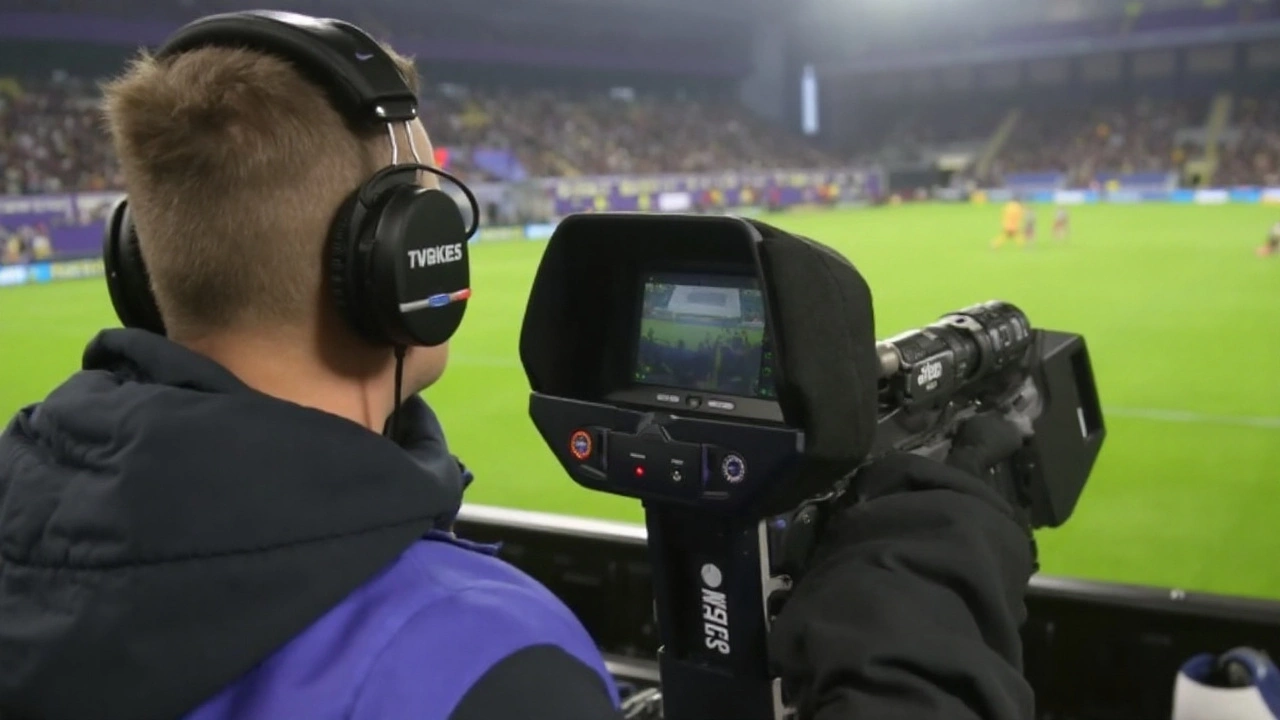A year-long probe ends in a high-profile raid
Days before the 2025 NFL season kickoff, Egyptian authorities moved in on Streameast, the internet’s biggest hub for illegal sports streaming, shutting it down after a year-long investigation. The operation, led with the Alliance for Creativity and Entertainment (ACE) — a coalition that counts Amazon, Apple TV, Netflix, and Paramount among its members — culminated in a raid in Sheikh Zayed City, a satellite city west of Cairo. Two men were arrested on suspicion of copyright infringement.
Investigators say Streameast was not a fringe operation. It ran through an ecosystem of 80 connected domains and drew more than 1.6 billion visits over the past year — roughly 136 million a month. Traffic was heaviest in the United States, Canada, Britain, the Philippines, and Germany. For many fans, it had become the go-to workaround to watch premium live sports without paying.
The raid wasn’t symbolic. Authorities seized hardware and financial instruments they believe were used to run and monetize the network. Among the items confiscated:
- Three laptops and four smartphones
- Visa cards holding about $123,000
- Cryptocurrency wallets containing roughly $200,000
ACE framed the takedown as a marquee win against digital piracy. Charles Rivkin, ACE chairman and CEO of the Motion Picture Association, hailed “a resounding victory,” arguing the action puts “more points on the board for sports leagues, entertainment companies, and fans worldwide.” Ed McCarthy, chief operating officer of Done and an ACE member, called the dismantling “a major victory for everyone who invests in and relies on the live sports ecosystem,” saying the criminal operation was siphoning value from the sport at every level and “putting fans across the world at risk.”
What did Streameast offer? Pretty much the sports calendar. Streams covered major American leagues — NFL, NBA, MLB — alongside European football staples like the Premier League and Champions League. Motorsports fans found Formula 1, while combat sports followers could watch MMA and boxing cards. That breadth helped Streameast build a massive global audience and made it a priority target for rights holders planning their biggest seasons.
The timing matters. The NFL’s opening weekend is one of the most-watched moments in U.S. sports, and piracy spikes around marquee events. By taking Streameast offline now, ACE and law enforcement cut off a huge source of illegal streams at the point of maximum demand. It also sends a signal to viewers who might be tempted to hunt for free links when subscription prices feel steep.

What the shutdown means for leagues, viewers, and the piracy fight
For rights holders, this is about more than bragging rights. Sports broadcasting fees run into the billions. That money funds league operations, athlete salaries, grassroots programs, and the technology that makes live broadcasts stable and high-quality. When a site that large diverts traffic, it chips away at the business model that pays for the product on the field.
Users are seeing the impact immediately. All Streameast domains now redirect to ACE’s Watch Legally page, which lists legitimate services by market. That redirect, combined with domain seizures and server takedowns, is a common one-two punch in these operations. It cuts the audience off and offers a path back to licensed options, even if those options vary by country.
Will that end the streams? Not overnight. ACE acknowledges copycat sites are already popping up to fill the gap. That’s the pattern: a flagship piracy brand goes dark, mirrors rush in to catch the stranded audience, and enforcement groups try to stay a step ahead. Expect more takedowns and faster legal moves as the season progresses, especially around high-profile weekends.
The Streameast case also shows how piracy operations try to stay resilient. Running dozens of domains provides backups when one address is blocked or seized. Sites swap hosting providers, move to new registrars, and lean on mirror pages and social channels to funnel users back after disruptions. Investigators counter by tracking financial flows, server fingerprints, and administrator activity across those domains.
For fans, there’s another angle: risk. Free streams often come with pop-up ad traps, spoofed download prompts, and malicious redirects. The devices seized in Egypt included significant funds on cards and crypto wallets — a reminder that piracy is a business, not a charity. Money usually moves through ad networks, paid resellers, tips, or premium tiers, and users can be the product when their data gets harvested.
The broader enforcement picture is global. Live-event piracy is a headache in every sports market, from weekend football in Europe to midweek playoff games in North America. Authorities increasingly combine raids like this with rapid site-blocking orders during live matches, takedown notices to CDNs and hosts, and pressure on payment processors and ad brokers. None of that ends piracy, but it raises the cost and shrinks the audience for the biggest offenders.
In practical terms, here’s what changes this week. Viewers who relied on Streameast for NFL, NBA preseason, or European football will find familiar addresses dead or redirected. Social media accounts and messaging groups that once pointed to Streameast links will start pushing clones. Some of those clones will be short-lived; others will try to build brand recognition quickly. If you’re looking for legal streams, prices and availability differ a lot by country, and blackout rules still apply in some markets — another reason users went to Streameast in the first place.
As for the investigation, the arrests in Sheikh Zayed City suggest authorities believe key operators or administrators were on the ground in Egypt. The seized laptops and phones will be important. Devices can reveal login locations, affiliate relationships, and operational playbooks that help map the wider network. That, in turn, can lead to more domain seizures and cooperation requests to overseas partners.
ACE and law enforcement will point to the scale: 1.6 billion visits cut off, eighty domains neutralized, significant funds frozen. Rights holders will hope that removes a big pressure valve before the NFL kicks off and the European football calendar ramps up. But the audience Streameast amassed won’t just vanish. The next few weeks will show whether those users shift to licensed services, drift to smaller piracy sites, or split between both.
The message from this raid is straightforward: the biggest piracy brands can be reached, even when they operate across borders and hop domains. What happens next is the harder part — keeping the streams down when the season heats up and the incentives to reboot are strongest.





